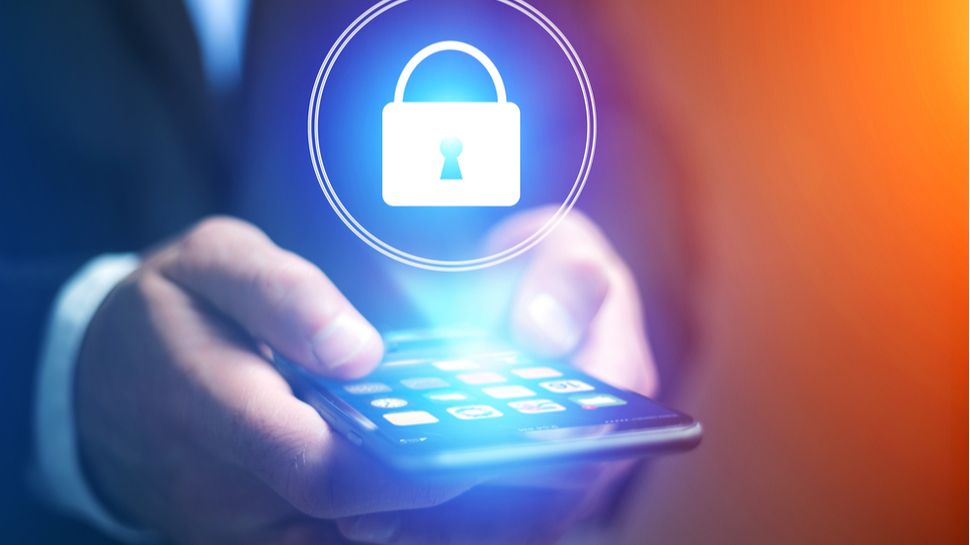Unveiling Mobile Security: What Makes the Most Secure Cell Phone?
Introduction
As our mobile phones have borne heavy witness to nearly every corner of our lives, protecting one's personal and sensitive data has become crucial. This article unveils the intricate realm of mobile security, underscoring its significance, delving into how it works, and ultimately answering the key question: What is the most secure cell phone?
Why is Mobile Security Crucial?
The prominence of mobile security in today's world can't be overstated. Here’s why it's considered an essential facet of our digital lives:
- Data Protection: Mobile phones are storehouses of personal and sensitive data. Without adequate security, this data is at risk, potentially leading to identity theft and fraudulent activities.
- Business Security: Mobile phones are not just personal devices anymore, they are also extensively utilized for business purposes. In the wrong hands, business-related information can lead to severe consequences like corporate espionage or data breaches.
- Gateway to Networks: Increasingly, mobile phones are being used as entry points for hacking into broader corporate networks. This places not just the individual user, but the entire system at risk, emphasizing the need for comprehensive mobile security.
In essence, with our growing reliance on mobile devices, the significance of mobile security is set to rise even further.
How Does Mobile Security Work?
As we delve into the realm of mobile security, two key components stand out significantly - Encryption and Biometrics. Together, they throw light on the complex mechanism that safeguards your phone against unauthorized access.
Delving into the Concept of Encryption on Cell Phones
* What is It?: Encryption on cell phones is essentially a systematic conversion of data into an encrypted or coded form, decipherable only with a special decryption key. It's an ingenious data scramble that renders your data unreadable to a rogue mind.
* How Does it Safeguard Your Data?: If you've ever lost your phone or had it stolen, encryption works to ensure that your data - including photos, personal emails, and app data - stays safe from unauthorized access. It's like an invisible safety vault.
The Crucial Role of Biometrics in Improving Mobile Security
* Understanding the Underlying Science: Biometrics in mobile security utilize human physical or behavioral attributes to authenticate the user. The most common ones include fingerprint scanning and facial recognition technology.
* Why Is It More Secure?: Offering a seamless blend of security and convenience, biometrics play a vital role in safeguarding mobile devices. Here’s why:
- Unique to Each User: Almost impossible to replicate, biometrics are distinctly unique to each individual, providing solid proof of identity.
- User-friendly Interface: Biometric security options also streamline the user experience, eliminating the need to remember complex passwords or codes.
- Rapid Authentication: Biometric protocols facilitate speedier access to mobile devices while maintaining a high level of security.
In brief, the robust tandem of encryption and biometrics reinforces mobile security, keeping your sensitive data shielded from potential breaches. Together, they form the pillars of a comprehensive cell phone security strategy.
What are the Most Secure Cell Phones in Today's Market?
Which smartphones mark their territory as the most secure in the industry? Here’s a look at the distinctive features that contribute to the security of three of the most secure cell phone models: iPhone, Samsung Galaxy, and BlackBerry Key2.
The Prowess of the iPhone: Secure by Design
iPhones are widely recognised as one of the safer bets when it comes to mobile security, and here's why:
- End-to-end encryption: The iPhone has built-in encryption that automatically encodes your data, making it nearly impossible for cybercriminals to retrieve it.
- Secure Enclave: For superior biometric authentication, iPhone boasts a Secure Enclave that processes and secures your fingerprint or face data independently from the rest of the device.
- Consistent updates: Apple's frequent software updates correct any security vulnerabilities promptly, keeping your system secure.
The Samsung Galaxy: A Defense-grade Security Custom
One of the market's most secure cell phone models is Samsung Galaxy, and here's how it ensures user security:
- Samsung Knox: This defense-grade security platform uses several layers to protect data from the hardware level through to the application layer.
- Biometric authentication: Samsung Galaxy supports facial recognition and fingerprint scanning, lowering the risk of unauthorized access.
- Regular system updates: Samsung's commitment to user security is evidenced by regular software updates, which solve any security vulnerability and offer enhanced protection.
Blackberry Key2: Masterpiece of Security Details
The BlackBerry Key2 is renowned for its impressive security capabilities. Let's explore what sets it apart:
- Embedded encryption: The Key2 comes with built-in encryption that ensures user data remains secure and inaccessible to potential cybercriminals.
- DTEK technology: This in-built privacy application consistently monitors your smartphone and warns you about potential security threats.
- Regular security patches: Blackberry releases monthly security patches and updates to keep your device protected against the latest threats.
By investing in any of these cell phones known for their heightened security measures, individuals can take their digital safety into their own hands. It's important to remember that while these devices offer exceptional security features, users must also engage in smart digital practices to maintain their data's integrity.
How Can You Enhance the Security of Your Cell Phone?
While possessing a secure cell phone is beneficial, it's also essential for users to take proactive measures to bolster their device's security. These can include staying current with software updates, managing passwords effectively, and employing the built-in security features of your device.
Importance of Regular Updates for Optimized Mobile Security
Keeping your mobile phone's software updated is a pivotal part of mobile security. Here's why:
- Defense against threats: Regular updates often include protections against newly-discovered security threats.
- Patching vulnerabilities: Updates often serve as patches, fixing security loopholes and vulnerabilities in the system.
- Optimized security: Most updates bring along enhancements and improvements to build upon existing security features.
Statistics affirm the importance of updates, as Appthority's Enterprise Mobile Security Pulse Report states that about 5.5% of iOS devices and 32% of Android devices run outdated operating systems - leaving them vulnerable to old, and sometimes well-known, security threats.

A Guide to Leveraging Passwords for Robust Mobile Security
Managing passwords proficiently is an essential aspect of mobile security. To build a strong first line of defense, consider these pointers:
- Be Unique: Avoid easy-to-guess passwords or PINs, like '1234' or 'password.'
- Password Managers: These tools can generate and store complex passwords for you, reducing the risk of human error.
- Two-Step Verification: This feature adds an extra layer of security, requiring both the password and a one-time pin or biometric input.
- Biometric Passcodes: Biometric passwords, like fingerprints or facial recognition, are even stronger than alphanumeric combinations, offering a seamless yet secure experience.
According to Verizon's Mobile Security Index 2019, 81% of breaches are due to stolen or weak passwords, underscoring the importance of effectual password practices.
By implementing these measures along with the security features of the most secure cell phones, users can enhance their protection against data theft and privacy breaches. The key lies in being vigilant and informed about mobile security.
Conclusion
In conclusion, having the most secure cell phone and employing user-specific security measures can help protect important data and add an extra layer of privacy. As the dynamics of mobile threats evolve, staying informed and vigilant can make a significant difference to mobile security.

Related FAQs about what is the most secure cell phone
What Makes a Cell Phone Secure?
A cell phone's security is ensured by various factors such as built-in encryption, tokenization for transactions, built-in VPN, biometric identifications like fingerprint scanning and facial recognition, secure boot, and frequent software updates. Advanced security features and user awareness on good security practices further boost the phone's security.
What are the Common Threats to Mobile Security?
Common threats to mobile security include malware, phishing attacks, Wi-Fi snipping, data leakage, unsecured applications, spyware, and physical theft of the device. These threats potentially compromise a device's data privacy, functioning, and may result in identity theft, among other consequences.
How Can Users Actively Contribute to Enhancing Mobile Security?
Users can actively contribute to enhancing their mobile security by regularly updating the device's software, managing applications from trusted sources only, using strong and unique passwords, leveraging password managers, enabling two-factor authentication, backing up data, and encrypting sensitive information. Awareness of potential threats and scams is also crucial.







